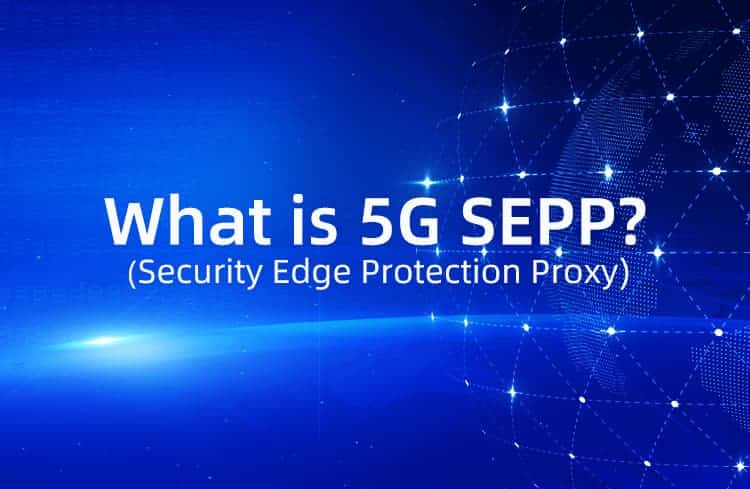Many people are ecstatic about the arrival of 5G technology. With its advanced networking capabilities, 5G will allows us to utilize numerous advanced devices, which includes IoT products. Its enormous speed will make downloading and uploading a breeze, making it a real game-changer when handling large files.
Unfortunately, as with any other new technology, 5G comes with its fair share of risks. Perhaps the biggest current issue providers face has to do with lacking infrastructure. While major efforts are made to create the basis for 5G, we’re still ways away from having the same 4G coverage.
We also have to think about security. Given that this technology will connect various devices into a single network, 5G would create numerous opening that are hard to patch. So, to make everything work, providers have to implement SEPP or Security Edge Protection Proxy technology.
In this article, we’ll explain SEPP protocols and why they’re so important for the future of mobile and internet networking.
Importance of SEPP Protocol in 5G Networks
SEPP is the main defense provider used against potential threats to 5G networks. With it, we create a safe environment for transferring data between devices where every piece of information is encrypted. The SEPP technology is vital for maintaining data integrity and confidentiality, ensuring no one can access messages transferred online.
In theory, SEPP can ensure unobstructed transfer of data from the source to the ultimate recipient. It ensures the person at the destination is the only one that can access the information.
As you can presume, SEPP is quite complex in nature. It consists of various aspects, giving users full protection of their signaling data. Not only does SEPP prevent intrusions and data misuse, but it also gives users full privacy. The technology relies on key agreements and versatile authentication supported by complex security algorithms.
Not only is the security edge protection proxy effective, but it has also become a standard within the industry. Mobile operators use SEPP to ensure network interconnectivity, a protection system that works by roaming between 5G cores.
Biggest Security Issues for 5G Tech
While 5G is fantastic, it comes with a plethora of challenges. The most common issues are related to the sheer number of IoT devices connected to a single network. Unfortunately, this isn’t the only issue you have to think about.
Threat Surface
As the number of devices increases, it becomes increasingly harder to safeguard users from outside threats. To make matters worse, many of these devices are interconnected with numerous other devices, thus increasing the attack surface you need to protect against.
The bast example of that are IoT products, which rely on other IoTs to function properly. When an attacker compromises a single device within that network, he gains access to all other devices simultaneously.
Applications provide a similar challenge. Each of them provides an entry point for malicious factors, which is why providers have to increase their defensive perimeter. Among others, you need to be aware of potential data stealing, property theft, spying, and spoofing.
Device Security
Based on what we’ve said so far, the security of a single IoT device can be vital for the entire device network. Alas, problems such as poor protection mechanisms and lack of encryption can doom several users and products at the same time.
Another common issue specifically related to IoT devices is the lack of security updates. Unlike mobile phones and PCs, these products don’t get regular patching. In fact, many manufacturers don’t care about the problem as their main concern is to provide short-term satisfaction.
Location Tracking
Although 5G networks will eventually reach the 4G coverage, at this moment in time, the infrastructure is severely underdeveloped. The signals are especially weak in rural areas.
Another issues pertaining to coverage has to do with 5G signal’s inability to penetrate thick walls. As a result, even though there’s extensive urban infrastructure, it doesn’t provide effective signal compared to 4G networks.
The lack of coverage makes it easier to detect users. The limited number of stations makes life easier for hackers, who can detect where the signal is coming from. Accurate identification leads to further privacy threats on top of existing, inherent vulnerabilities.
Data Security Threats
The best thing about the 5G concept is its ability to process enormous quantities of data. Unfortunately, the high data load also exposes the network to liabilities. As the number of entries and endpoints increases, so does the risk for data.
Each piece of information transferred between users represents a potential vulnerability for the entire system. For example, a small issue with encryption or the wrong recipient can affect data security.
Lack of Compatibility
Although 5G has been around for several years, many users still rely on 4G. As a result, we have to think of backward compatibility between the older devices and networks and the newer ones. The main problem here is that the older systems don’t get regular support and updates increasing the number of vulnerabilities.
In an ideal world, providers of old generation networks should patch these issues. However, as the world is moving onward, this is unlikely to be the case.
Simplifying Network Traffic as a Solution
While all these challenges sound insurmountable on paper, there are things that might help you out. Smart providers rely on SEPP as the best way to ensure safe connections between devices. The technology works by centralizing and streamlining the entire management process, which is the best way to address its complexity.
SEPP shines when implementing policies across the board. It’s excellent for monitoring devices and intercepting threats ahead of time. As such, SEPP is important not only for security but also for boosting the overall user experience.
Conclusion
5G brings about a whole new set of issues for mobile and internet users. But with the help of SEPP, you can significantly increase protection for the entire network. The technology does a great job of encrypting your data and ensuring higher confidentiality and integrity.



